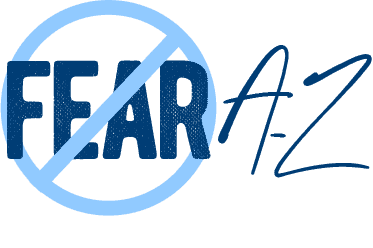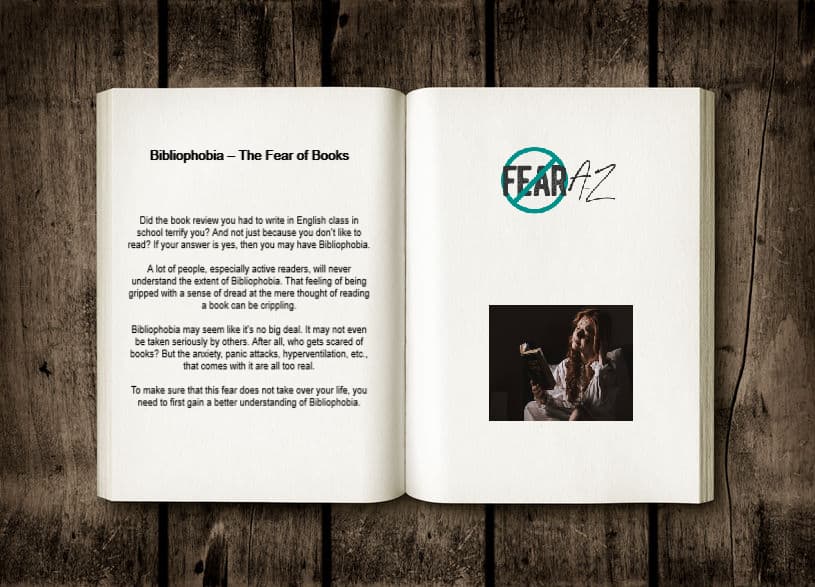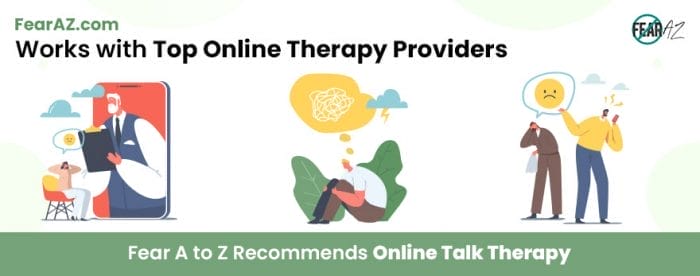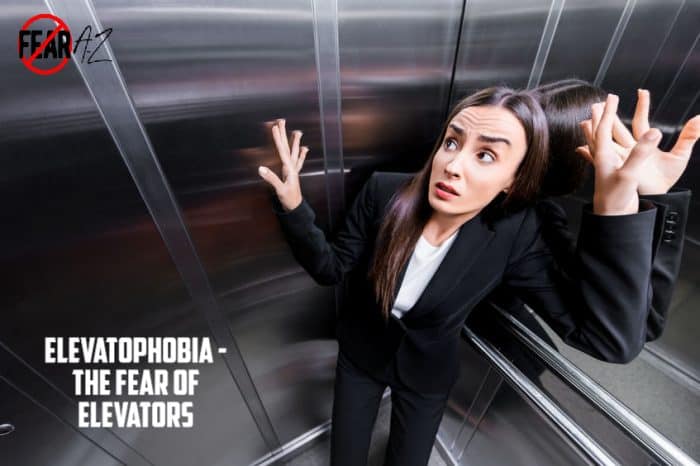Share This Article
Excessive Fear of Books
Did the book review you had to write in English class terrify you? And not just because of the reading? Did you struggle to even browse through books for the assignment? Did you stash that book out of sight? Maybe you hid it in a drawer or beneath your bed. If your answer is yes, then you may have bibliophobia.
A lot of people, especially active readers, will never understand the impact of bibliophobia. They may never be gripped with a sense of dread at the mere thought of reading a book.
To others, bibliophobia may seem like no big deal. Afterall, who gets scared of books, right? But the anxiety, panic attacks, and hyperventilation that comes with the phobia are all too real to those who struggle with it.
If you want to keep this fear of books from taking over your life, why not first gain a better understanding of it?
What Causes Bibliophobia
Like most phobias, bibliophobia may be caused by several different factors. And these factors differ from person to person. It’s thought one of the major causes could be genetics. If someone in your family, a parent perhaps, has grown up with bibliophobia, you may inherit or adapt this fear from them.
The cause could even be something as trivial as a bad book-reading experience. Perhaps you mispronounced a word in front of an audience and were scarred for life. It’s a possibility. Reading a horror book in childhood can also lead to developing bibliophobia later in life.
Other factors such as learning disabilities are known to be related to bibliophobia. This is especially true for those whose disabilities are undiagnosed, including dyslexia and phobias such as the fear of long words (hippopotomonstrosesquipedaliophobia).
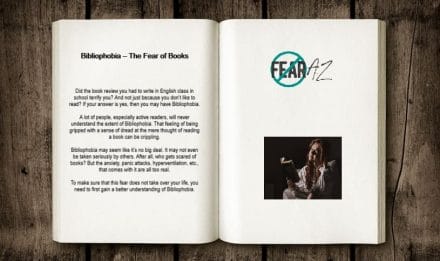
Everything You Need to Know about Bibliophobia
The term bibliophobia is derived from the Greek word biblion meaning books and Phobos meaning fear. Bibliophobia is not a word to be thrown around lightly just because you don’t like reading. The fear is very real and can be traumatizing for those who experience it.
Although this phobia of books is not dangerous or harmful, it can have an adverse impact on your daily life if it gets out of control. The fear of books is unusual and like other phobias, it’s considered an irrational fear. But saying that out loud hasn’t helped you yet, has it?
Those with bibliophobia often do not feel like they need help. They believe they can simply avoid books, which gives them a false sense of control over their fear. Although this may seem like a quick fix for the problem, avoiding the issue or leaving it unresolved can eventually begin to limit your life.
Symptoms of Bibliophobia
The severity of the symptoms of bibliophobia depends on the intensity of the phobia itself. Bibliophobia may be an irrational fear, but the symptoms one experiences are real.
Individuals with bibliophobia may experience physical as well as mental and emotional symptoms. These symptoms can range from mild to disabling. Anxiety and panic attacks are commonly observed in almost all types of phobias, including bibliophobia, where the very thought of a library can trigger the fear. Let’s take a look below at some of the known symptoms of bibliophobia.
Mental/Emotional Symptoms
- Anxiety and fear when confronted by books
- Avoiding being around books
- Feeling nervous or ashamed of the fear
- Feeling panicked and wanting to run away when around books
- Constantly worrying about dealing with books
- Blaming oneself and feeling guilty
- Difficulty concentrating
- Feelings of confusion
Physical Symptoms
- Excessive sweating
- Nausea
- Tightness in chest or chest pain
- Dry throat
- Trembling
- Clammy hands
- Increased heart rate
- Feeling dizzy
- Lightheadedness
- Difficulty breathing or shortness of breath
- Hyperventilation
- Chills or hot flushes
An individual with bibliophobia may experience some or all of these symptoms. It’s important that you are aware of and can recognize these as they may worsen if not addressed in time.
How to Overcome Bibliophobia
Just because you have bibliophobia, doesn’t mean you have to suffer with it for the rest of your life. Bibliophobia can be overcome with some effort, and there are numerous ways to do it. Maybe you can’t change the past that caused your fear, but you can change the future and the nature of the fear itself. All you need to do is give yourself a nudge in the right direction.
Can Self Help Work?
While most people would say therapy is the best way to overcome any phobia, before you consider seeking out a therapist, you may first want to try some self-help methods to overcome your fear.
Like other phobias, treating the symptoms of bibliophobia can go a long way. Anxiety is the primary and most visible effect of this phobia, and there are ways to deal with anxiety on your own.
Breathing exercises are a great way to calm yourself. Controlled breathing, taking deep breaths, and rhythmic breathing is known to reduce anxiety.
Another proven method to address anxiety is to meditate or practice yoga. Yoga is known to have a calming effect on our minds. Regular practice helps the mind divert to more self-assuring and positive thoughts, away from the fear and distress of the phobia.
You can even try journaling to help identify your triggers, so you can better deal with them.
Professional Help for Bibliophobia
If you aren’t quite as successful in helping yourself as you had hoped, you may want to look into seeking outside help. Mental health professionals are familiar with the ins and outs of phobias and are better equipped to help you overcome them.
Depending on the severity of your phobia, your therapist may apply different methods. Some of the effective treatment methods are as follows.
Cognitive behavioral therapy (CBT) is the most widely used technique to address various disorders. It involves replacing the irrational thoughts of bibliophobia with rational thoughts through analysis and logical thinking.
Dialectical behavior therapy (DBT) involves teaching coping skills such as developing a positive reaction (e.g., smiling) to the phobia or learning to calm oneself.
Exposure therapy, as the name suggests, exposes the person to their fear, starting with the least triggering stimuli (looking at a picture of books) and eventually moving on to holding a book.
Mindfulness-based stress reduction (MBSR) is a stress-reduction therapy that uses meditation and yoga to teach you how to calm yourself.
Medication may also be prescribed in extreme cases. But remember, self-medication is never a good idea. Always talk to your therapist if you feel you need more help.
Coping with Bibliophobia
Acknowledging that your phobia is real and not something that will just go away on its own is the first step to overcoming it. Arming yourself with a better understanding of your fears will help you deal with them more effectively.
Even though many phobias can be cured, there is no guarantee of that. No single treatment is known to be effective for all. The effectiveness of the coping mechanisms and therapies described here depends largely on the severity of the problem.
However, you can use this information to lessen the anxiety that comes with bibliophobia. Deep breaths, meditative thoughts, and relaxation techniques can be helpful in addressing this problem.
Overcoming your fear of books will go a long way in changing your lifestyle and your understanding of the world. The world of books is beautiful and filled with poetry, art, magic, and infinite imaginings. So the next time your friend tells you about an interesting book, take a deep breath and tell yourself you’ll be fine. Who knows? You just might find yourself curled up with that book, letting its magic introduce you to whole new worlds.
